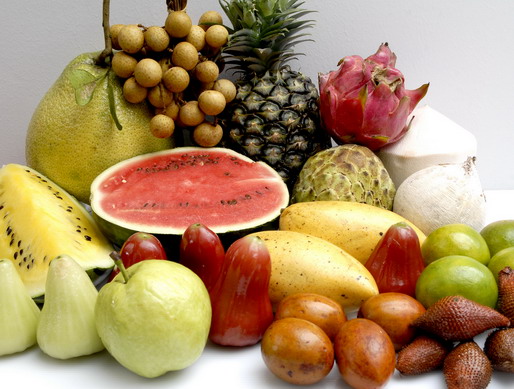sandra canada
Laa ilaha illa Allah


Essential Nutrients in the World's Healthiest Foods
Essential nutrients are nutrients that your body can't make on its own. How these nutrients are introduced into your body may have a great impact on how well they are utilized. Nutrients do not work alone but in concert (synergistically) with other nutrients. The benefit of deriving nutrients from eating fresh whole foods such as those included on the list of the World's Healthiest Foods is that they provide not only an abundance of individual nutrients but also the variety necessary for their optimal function. This section is designed to inform you about the function of the various nutrients and which of the World's Healthiest Foods are the richest source for each of them.
Essential nutrients are nutrients that your body can't make on its own. How these nutrients are introduced into your body may have a great impact on how well they are utilized. Nutrients do not work alone but in concert (synergistically) with other nutrients. The benefit of deriving nutrients from eating fresh whole foods such as those included on the list of the World's Healthiest Foods is that they provide not only an abundance of individual nutrients but also the variety necessary for their optimal function. This section is designed to inform you about the function of the various nutrients and which of the World's Healthiest Foods are the richest source for each of them.
alpha-carotene
What can foods rich in alpha-carotene do for you?
- Protect your cells from the damaging effects of free radicals
- Provide a source of vitamin A
- Enhance the functioning of your immune system
- Help your reproductive system function properly
What events and lifestyle factors can indicate a need for more foods that are rich in alpha-carotene?
- Smoking and regular alcohol consumption
- Low intake of fruits and vegetables
- Description
- Function
- Deficiency Symptoms
- Toxicity Symptoms
- Cooking, storage and processing
- Factors that affect function
- Drug-nutrient interaction
- Nutrient interaction
- Health conditions
- Supplements
- Food Sources
- Public Recommendations
- References
What is alpha-carotene?
Alpha-carotene is one of the most abundant carotenoids in the North American diet. It is a "provitamin A"compound, one of approximately 50 carotenoids able to be converted in the body into retinol, an active form of vitamin A. Alpha-carotene has approximately one-half of the vitamin A activity of beta-carotene.
How it Functions
What are the functions of alpha-carotene?
Preventing Vitamin A Deficiency
Until late in the 20th Century, the functions of carotenoids, including alpha-carotene, were discussed only in terms of their potential vitamin A activity. Alpha-carotene is one of approximately 50 carotenoids of the known 600, that are called "provitamin A" compounds because the body can convert them into retinol, an active form of vitamin A.
As a result, foods that contain alpha-carotene can help prevent vitamin A deficiency. In addition to beta-carotene and beta-cryptoxanthin, alpha-carotene is among the most commonly consumed provitamin A carotenoids in the North American diet.
Antioxidant & Immune-Enhancing Activity
In recent years, carotenoids including alpha-carotene have received a tremendous amount of attention as potential anti-cancer and anti-aging compounds. Alpha-carotene is a powerful antioxidant, protecting the cells of the body from damage caused by free radicals.
Promoting Proper Cell Communication
In addition to their antioxidant and immune-enhancing activity, carotenoids including alpha-carotene have shown the ability to stimulate cell to cell communication. Researchers now believe that poor communication between cells may be one of the causes of the overgrowth of cells, a condition which eventually leads to cancer. By promoting proper communication between cells, carotenoids may play a role in cancer prevention.
Deficiency Symptoms
What are deficiency symptoms for alpha-carotene?
A low dietary intake of carotenoids such as alpha-carotene is not known to directly cause any diseases or health conditions, at least in the short term. However, if your intake of vitamin A is also low, a dietary deficiency of alpha-carotene and/or other provitamin A carotenoids can cause the symptoms associated with vitamin A deficiency.
In addition, long-term inadequate intake of carotenoids is associated with chronic disease, including heart disease and various cancers. One important mechanism for this carotenoid-disease relationship appears to be free radicals. Research indicates that diets low in alpha-carotene and carotenoids can increase the body's susceptibility to damage from free radicals. As a result, over the long term, alpha-carotene deficient diets may increase tissue damage from free radical activity, and increase risk of chronic diseases like heart disease and cancers.
Toxicity Symptoms
What are toxicity symptoms for alpha-carotene?
High intake of carotenoid-containing foods or supplements is not associated with any toxic side effects. As a result, the Institute of Medicine at the National Academy of Sciences did not establish a Tolerable Upper Intake Level (UL) for carotenoids when it reviewed these compounds in 2000.
Impact of Cooking, Storage and Processing
How do cooking, storage, or processing affect alpha-carotene?
In certain cases, cooking can improve the availability of carotenoids in foods. For example, lightly steaming carrots and spinach improves your body's ability to absorb the carotenoids in these foods.
Factors that Affect Function
What factors might contribute to a deficiency of alpha-carotene?
Carotenoids such as alpha-carotene are fat-soluble substances, and as such require the presence of dietary fat for proper absorption through the digestive tract. Consequently, your alpha-carotene status may be impaired by a diet that is extremely low in fat or if you have a medical condition that causes a reduction in the ability to absorb dietary fat such as pancreatic enzyme deficiency, Crohn's disease, celiac sprue, cystic fibrosis, surgical removal of part or all of the stomach, gall bladder disease, and liver disease.
Due to low consumption of fruits and vegetables, many adolescents and young adults do not take in enough carotenoids. In addition, if you smoke cigarettes and/or drink alcohol, you may have lower than normal blood levels of alpha-carotene. Statistically speaking, smokers and drinkers eat fewer foods that contain carotenoids such as alpha-carotene. Also, researchers suspect that cigarette smoke destroys carotenoids. However, if you do smoke or drink, use carotenoid supplements with caution.
Drug-Nutrient Interactions
What medications affect alpha-carotene?
The cholesterol-lowering medications referred to as bile acid sequestrants (Cholestyramine, Colestipol, and Colestid) lower blood levels of carotenoids. In addition, margarines enriched with plant sterols such as Benecol and Take Control, may decrease the absorption of carotenoids. Olestra, a fat substitute added to snack foods, may also decrease the absorption of carotenoids.
Nutrient Interactions
How do other nutrients interact with beta-carotene?
Supplementing your diet with pectin may decrease the absorption of carotenoids.
Health Conditions
Carotenoids may play a role in the prevention of the following health conditions:
- Acquired Immunodeficiency Syndrome (AIDS)
- Age-related macular degeneration
- Angina pectoris
- Cataracts
- Cervical cancer
- Cervical dysplasia
- Chlamydial infection
- Heart disease
- Laryngeal cancer (cancer of the larynx)
- Lung cancer
- Male and female infertility
- Photosensitivity
- Pneumonia
- Prostate cancer
- Skin cancer
- Vaginal candidiasis
Form in Dietary Supplements
What forms of alpha-carotene are found in dietary supplements?
In dietary supplements, alpha-carotene is available (with other carotenoids) from the algae Dunaliella, and from mixed carotenes from palm oil.
It is important to note, however, that, due to the inconsistent results from research studies aimed at evaluating the health benefits of beta-carotene supplements (which may also contain alpha-carotene), the National Academy of Sciences cautions against taking high dose carotenoid supplements, except as a method for preventing vitamin A deficiency.
Food Sources
Introduction to Nutrient Rating System Chart
The following chart shows the World's Healthiest Foods that are either excellent, very good or good sources of this nutrient. Next to each food name you will find the following information: the serving size of the food; the number of calories in one serving; DV% (percent daily value) of the nutrient contained in one serving (similar to other information presented in the website, this DV is calculated for 25-50 year old healthy woman); the nutrient density rating; and the food's World's Healthiest Foods Rating. Underneath the chart is a table that summarizes how the ratings were devised. Read detailed information on our Nutrient Rating System.
Food Source Analysis not Available for this Nutrient
Public Health Recommendations
What are current public health recommendations for alpha-carotene and carotenoids?
To date, no recommended dietary intake levels have been established for carotenoids. In an effort to set such recommendations, the Institute of Medicine at the National Academy of Sciences reviewed the existing scientific research on carotenoids in 2000.
Despite the large body of population-based research that links high consumption of foods containing beta-carotene and other carotenoids with a reduced risk of several chronic diseases, the Institute of Medicine concluded that this evidence was not strong enough to support a required carotenoid intake level because it is not yet known if the health benefits associated with carotenoid-containing foods are due to the carotenoids or to some other substance in the food.
Despite the large body of population-based research that links high consumption of foods containing beta-carotene and other carotenoids with a reduced risk of several chronic diseases, the Institute of Medicine concluded that this evidence was not strong enough to support a required carotenoid intake level because it is not yet known if the health benefits associated with carotenoid-containing foods are due to the carotenoids or to some other substance in the food.
However, the National Academy of Sciences supports the recommendations of various health agencies, which encourage individuals to consume five or more servings of fruits and vegetable every day.
References
- Agarwal S, Rao AV. Carotenoids and chronic diseases. Drug Metabol Drug Interact 2000;17(1-4):189-210 2000. PMID:15130.
- Burri BJ. Carotenoids and gene expression. Nutrition 2000 Jul-2000 Aug 31;16(7-8):577-8 2000. PMID:15140.
- Chen J, He J, Hamm L et al. Serum antioxidant vitamins and blood pressure in the United States population. Hypertension 2002 Dec;40(6):810-6 2002.
- Delgado-Vargas F, Jimenez AR, Paredes-Lopez O. Natural pigments: carotenoids, anthocyanins, and betalains-- characteristics, biosynthesis, processing, and stability. Crit Rev Food Sci Nutr 2000 May;40(3):173-289 2000. PMID:15150.
- Groff JL, Gropper SS, Hunt SM. Advanced Nutrition and Human Metabolism. West Publishing Company, New York, 1995 1995.
- Handelman GJ. The evolving role of carotenoids in human biochemistry. Nutrition 2001 Oct;17(10):818-22 2001. PMID:15100.
- Krinsky NI. Carotenoids as antioxidants. Nutrition 2001 Oct;17(10):815-7 2001. PMID:15110.
- Krutovskikh V, Asamoto M, Takasuka N, Murakoshi M, Nishino H, Tsuda H. Differential dose-dependent effects of alpha-, beta-carotenes and lycopene on gap-junctional intercellular communication in rat liver in vivo. Jpn J Cancer Res 1997 Dec; 88(12):1121-4 1997.
- Lininger SW, et al. A-Z guide to drug-herb-vitamin interactions. Prima Health, Rocklin, CA, 2000 2000.
- Miller KL. Alternatives to estrogen for menopausal symptoms. Clin Obstet Gynecol 1992 Dec;35(4):884-93 1992.
- Pizzorno J, Murray M. The Textbook of Natural Medicine. The Textbook of Natural Medicine 1998.
- Young AJ, Lowe GM. Antioxidant and prooxidant properties of carotenoids. Arch Biochem Biophys 2001 Jan 1;385(1):20-7 2001. PMID:15120.
- Zhang LX, Cooney RV, Bertram JS. Zhang LX, Cooney RV, Bertram JS. Carotenoids enhance gap junctional communication and inhibit lipid peroxidation in C3H/10T1/2 cells: relationship to their cancer chemopreventive action. Carcinogenesis 1991 Nov;12(11):2109-14 1991.







